今月の視聴者は見ることができます Net Zero Speaks with Chris Dede 聴衆は学生の心の調整をスクリーニングすることができます. この映画は、Protect our Planet andPlanetClassroomによってキュレーションされました。
How can educational systems adapt to empower students to take action on global 21st century issues such as the global climate crisis? 中に Net Zero Speaks with Chris Dede, Cherry Sung from South Korea explores how a conservative and standardised education system could implement an environmental education that empowers people. She discusses the issues and possible solutions with Chris Dede of Harvard’s Graduate School of Education. Dede’s research, which includes infusing technology into large-scale educational improvement initiatives such as climate change curricula, is focused on developing new types of educational systems that prepare learners for the challenges of a 21st century world.
教育のためのグローバル検索 is pleased to welcome Net Zero’s Cherry Sung.
Why did you select this particular Climate Thought Leader to interview? What inspired you about him?
I selected Chris Dede because after reading potential thought leaders’ biographies, I was truly inspired by his vision of infusing digital technology to promote environmental education. Chris works to develop policies that support educational transformation and provide leadership in educational innovation. In the country I live in, 韓国, the traditional education system is very standardised and focused on the exam subjects only. I believe an interdisciplinary, inquiry-based education would not only interest students but also empower them to be independent in their learning and be prepared to respond to real-life world issues like climate change. Following the given path of digital education, I wanted to know more about how this can be actualized and what Chris is exactly doing in his place about this.
面接で一番驚いたこと?
The most surprising thing about my interview with Chris was that he mentioned how the implementation of environmental education should consider what people are used to. In order to scale up innovations from local to widespread use, innovations cannot be completely abstract because people might feel uncomfortable with them. I realised that innovations that are intended for widespread use should be part of people’s everyday lives. This would promote a feeling of connectedness. 気候変動, to many, could be a gigantic issue that only the world authorities can solve. しかしながら, youth and public support is also critical in our response to climate change. 従って, awareness raising through a sense of connectedness would be helpful.
どのようなものがあります 3 インタビューから Net Zero 視聴者に得られた主なポイント?
ザ· 3 main key takeaways for the Net Zero audience from my interview are: 最初の, in order to implement environmental education, it should be inquiry-based, so that we can empower people. We cannot stick to a solution-based learning system where youth are constrained from being independent learners; 第2, a digital ecosystem would also be effective in following the future path of the world with digitalization and in responding to the 21st century’s issues. Chris Dede’s Eco Learn curriculum allows students to have the opportunity to extend their learning as they embark on a field trip to a real environment – for example, a pond. Their experience in the real world is enhanced by using mobile technology for science education; 第3, it is easy to feel a sense of despair about climate change and other environmental issues. まだ, it isn’t too late. 最近, messages about environmental education and mitigation are framed to scare people. But when people are scared and that they feel like they cannot make a difference, they are discouraged to take action. このようにして, it is important for students of any age to believe and spread the message that climate change can be prevented or slowed down.
Thank you Cherry!
C言語. M. Rubin and Cherry Sung
お見逃しなく Net Zero Speaks with Chris Dede, 現在、Planet ClassroomNetworkで上映中. この映画は、Protect our Planet andPlanetClassroomによってキュレーションされました。

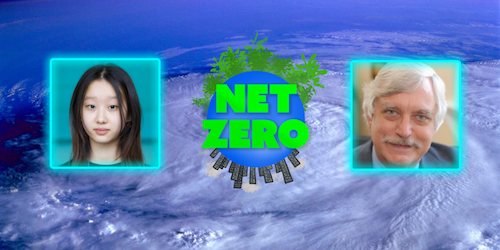
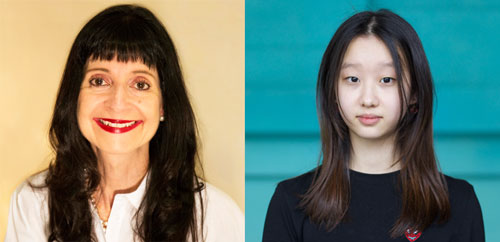
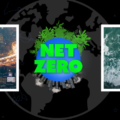
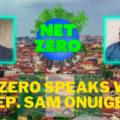

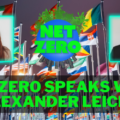
最近のコメント